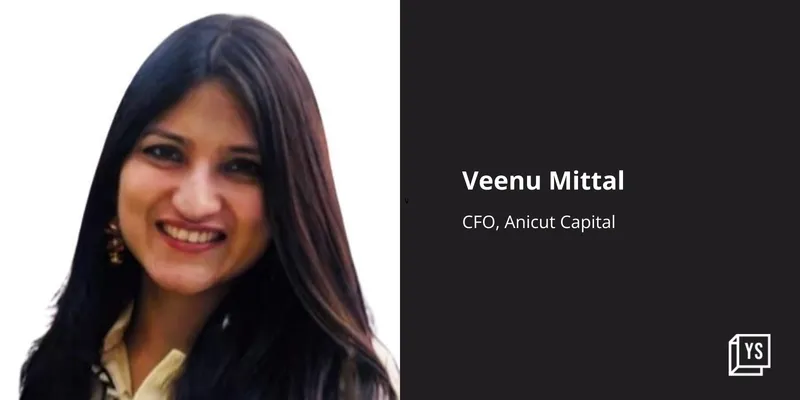Anicut Capital plans to go full steam ahead to back startups
Chennai-based Anicut Capital has complete faith in the growth potential of startups. The multi-asset financial firm is in the final stages of raising fresh capital for deployment into startups and aims to grow its AUM to Rs 7,500 crore in FY25 from around Rs 4,500 crore now.
‘Anicut’ in Tamil means ‘dam’. And much like the structure that stores and supplies water when required, Chennai-headquartered wishes to gather funds exponentially and deploy them when the opportunity arises.
The multi-asset financial firm aims to grow its asset under management (AUM) to Rs 7,500 crore in FY25 from around Rs 4,500 crore currently.
This optimistic projection by Anicut Capital comes at a time when the Indian startup ecosystem is facing a so-called funding winter. According to YourStory Research, in 2023, the total funding in Indian startups saw a 53% decline when compared to 2022.
However, the financial services firm believes there are enough growth opportunities in startups and is keen to back young companies across multiple segments. It currently invests in a wide range of sectors such as SaaS, D2C, logistics and fintech.
In an interaction with YourStory, Veenu Mittal, Chief Financial Officer (CFO), Anicut Capital, says, “We typically fund about seven to eight transactions a year in the private credit space and this will continue to happen. In the startup segment, we will continue to invest in 15-20 ventures on an annual basis.”
The firm sees numerous investment opportunities across small and medium businesses (SMBs), seed investing, early-stage funding, and possibly even late-stage funding.

Anicut Capital, founded by Ashvin Chadha and IAS Balamurugan, is one of the few financial firms in the country that offer both private credit and venture capital as part of investments. It launched its first private credit fund in 2016, and since then the firm has launched several funds, including a venture capital business, to support SMBs and startups.
The firm has invested in over 100 companies so far. Its portfolio includes the likes of aerospace company , QSR chain , , craft beer brand Bira, fintech firm , dairy products brand Milky Mist, Blue Tokai Coffee Roasters, and space-tech startup Astrogate.
Changing environment
After the highs of 2021 and early 2022, the funding frenzy has settled down, and there is a saner, deliberative approach towards investments today.
Mittal says there has been a “healthy correction” in the valuation of enterprises. She believes that, while there is no dearth of capital, investors are now more focused on the economics of the business, where the goal is to build a sustainable and profitable venture.
This could also mean that many businesses may have to shut down or merge with others to stay afloat. This trend is expected to persist at least for the next 6-9 months, she adds.

Focus areas
, according to Mittal, has always been focused on “fundamentally value-driven businesses”, which are backed by strong leadership and have the potential to grow not only in India but also overseas.
In the private credit space, the firm largely provides capital to businesses for three use cases: acquisitions, buyback programmes, and growth capital to startups in between two equity rounds.
Mittal points out that the private credit largely goes to businesses from Tier II and III cities and generally the firm does not focus on businesses operating in the metros.
For instance, Erode-based Milky Mist, Coimbatore-headquartered Pricol, and SFO Technologies which is headquartered in Kochi are some of the non-metro businesses for which Anicut has loaned private credit.
Mittal mentions that Anicut Capital is one of the few firms in the country that not only provide private credit but also take on an equity warrants position in the businesses they invest in.
When it comes to venture funding, Anicut Capital participates both at the seed stage of investment and Series A funding. These are ventures that are largely based in metros, including , Giva, , and .
Although Anicut Capital is sector agnostic when it comes to investments, it finds strong opportunities in segments such as electric vehicles, consumer tech, fintech, artificial intelligence, deeptech, logistics, and SaaS, to name a few.
Fund play
Anicut Capital launched its first private credit fund in 2016 and ended up raising Rs 400 crore, well above the target size of Rs 250 crore. Its second fund was in 2019 wherein it raised Rs 850 crore; this capital is fully deployed.
The firm plans to close the third fund at around Rs 1,300 crore to Rs 1,350 crore and has already raised 50% of the capital. It is looking to close this fund soon and, in the process, also complete its deployment.
On the venture capital side of the business, Anicut Capital has a seed fund of Rs 250 crore, which has been deployed in about 60 startups.
The investment firm also has a growth equity fund at a size of around Rs 500 crore, which invests in Series A and B rounds. It has made seven investments from this fund.
Lastly, Anicut Capital is working on a late-stage pre-IPO fund at a total size of Rs 300 crore. The focus of this fund would be five or six companies that are profitable or nearing profitability, says Mittal, adding that the firm has already identified the companies that would be part of this fund.
According to the CFO of Anicut Capital, the firm continues to receive the backing of a wide pool of investors for its various funds. The investors include HDFC, SIDBI Fund of Funds, Self Reliant India Fund, family offices, and general partners of venture capital firms.
According to Mittal, the private credit fund of Anicut Capital has generated an internal rate of return of around 17%, while the venture funding segment has generated a multiple on invested capital of around 1.9.
It is a busy time for Anicut Capital as the team hits the streets meeting investors who are willing to back them and founders of promising startups. Even as it looks to deploy capital in startups as well as raise money for its upcoming funds, the firm is focused on taking a judicious stance—given that they are answerable to investors, according to the CFO.
As Mittal says, “Capital preservation remains the key focus for us. We protect the investors’ capital first and then try to grow from there.”
Edited by Swetha Kannan









